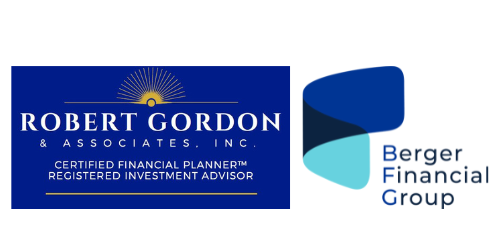Graduation Season Is here - How to Start Down the Path Towards Financial Success
Submitted by Robert Gordon & Associates, Inc on April 27th, 2018
With another graduation season upon us, young people are trying to make the transition from college to colleague. There will be big changes and challenges ahead. If you can start off on the right financial footing in your 20's, you will be leaps and bound ahead of others that don't get their finances in order until later in life.
Following the items on this list essentially guarantees financial success!
- Living within your means
Everyone needs to make sure they have enough to live on by assessing needs vs. wants. Start with your take home pay, then subtract essentials like rent, transportation, groceries, utilities, and student loan payments. What’s left is the amount for discretionary spending.
- Comprehensive health insurance
Employer-sponsored health insurance should be taken advantage of, if possible. If that’s not available, consider a low-cost, high-deductible policy. Maintaining a health savings account (HSA) offers an additional benefit of setting aside pre-tax funds for health care expenses.
- Automatic payments for recurring bills
Having a paycheck directly deposited into a bank account and setting up automatic payments for regular monthly bills can help with avoiding late fees. Credit card debt Using a card helps build credit, as long as the credit card can be paid off each month. Having a single card may be easier to manage.
- Student loan payments
Fees and penalties can add up. Consider repayment options—and always paying at least the minimum due each month. Studentaid.gov is a good resource for more information on how to repay student loans as well as loan forgiveness programs for certain types of work.
- Getting a jump on savings
Consider opening a savings account, and putting aside as much as is affordable each month. An automatic transfer from checking to savings can help make savings part of a monthly budget.
- Emergency fund
It’s recommended to set aside enough cash to cover essential expenses for three to six months. A savings account keeps the money easily accessible.
- Retirement accounts
An employer 401(k) plan should be taken advantage of, if possible. Consider contributing at least enough to get the full company match, if offered. When a 401(k) is not available, a Roth IRA might be worth researching. It’s important to read the fine print regarding eligibility and contribution and deductibility limits.
- Investing
After some funds have been stockpiled, investing can put savings to work. It doesn’t take a lot, and the sooner investing starts, the more benefit can be gained from compounding interest.
- Mindful spending
It’s important to know where money is going—and where it should be going. Mindful spending means setting realistic goals, having awareness of the full financial picture, and knowing when to cut back and when it’s OK to spend.

